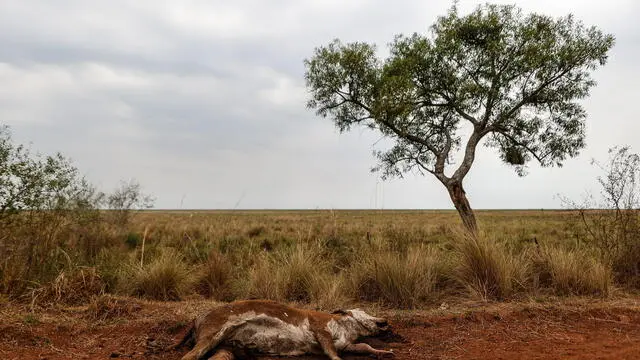Strage di capi di bestiame per la siccità nella pampa argentina

Oltre 5400 vacche sono morte negli ultimi mesi nel sud della pampa argentina a causa della siccità estrema che colpisce la regione da oltre un anno. Secondo dati del Servizio nazionale di sanità agroalimentare (Senasa) inoltre, oltre 100 mila capi di bestiame su un totale di 270.000 presenti all'inizio del 2023 nella regione sud della provincia di La Pampa sono stati trasferiti o venduti anticipatamente ad allevamenti di altre aree con l'obiettivo di limitare le perdite. Una delle zone più tradizionali della produzione bovina argentina si trova quindi in un profondo stato di crisi con oltre 60 produttori che sono stati costretti ad abbandonare l'attività negli ultimi 12 mesi. "Siamo costretti a supplire alla carenza di fieno bilanciando con altri alimenti per poter mantenere in vita gli animali, ma in assenza di altre possibilità siamo costretti a svendere i capi o a vederli morire", afferma la presidente dell'Associazione degli allevatori del sud pampeano (Arsp), Antonia Ochandorena. Per la prolungata siccità il governo provinciale ha decretato l'emergenza fino al mese di maggio.
Riproduzione riservata © Giornale di Brescia
Iscriviti al canale WhatsApp del GdB e resta aggiornato
